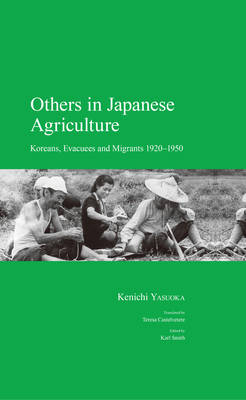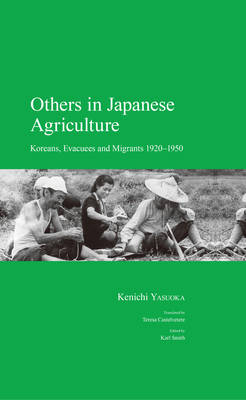
- Retrait gratuit dans votre magasin Club
- 7.000.000 titres dans notre catalogue
- Payer en toute sécurité
- Toujours un magasin près de chez vous
- Retrait gratuit dans votre magasin Club
- 7.000.0000 titres dans notre catalogue
- Payer en toute sécurité
- Toujours un magasin près de chez vous
Description
Japan's national identity associates the 'Japanese people' with the Japanese land, making the farmer the backbone of the nation. Others in Japanese Agriculture challenges this mythology, revealing the changing faces of Japanese farmers during the colonial and post-war eras. First, it traces the tangled trail of Koreans brought into farming villages as a result of war mobilization and capitalist development. Second, it discusses the plight of those who evacuated from cities as they attempted to eke out a living on marginal land. Third, it points out that settlers repatriated from the colonies were met with hostility from villagers and indifference from authorities. Finally, it explores how those who were encouraged to emigrate for 'the good of the nation' in post-war Japan, found themselves victims of agrarian reforms, which severed their ties. In sum, despite being lauded as the 'backbone of the nation' Japanese farmers have been repeatedly marginalized and othered.
Spécifications
Parties prenantes
- Auteur(s) :
- Editeur:
Contenu
- Nombre de pages :
- 374
- Langue:
- Anglais
- Collection :
Caractéristiques
- EAN:
- 9781925608168
- Date de parution :
- 17-09-21
- Format:
- Livre broché
- Format numérique:
- Trade paperback (VS)
- Dimensions :
- 140 mm x 216 mm
- Poids :
- 430 g

Les avis
Nous publions uniquement les avis qui respectent les conditions requises. Consultez nos conditions pour les avis.






